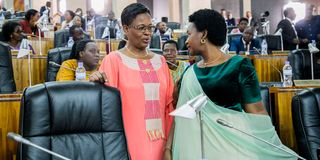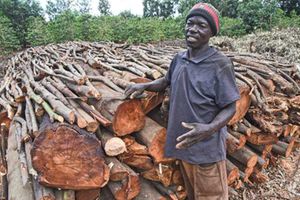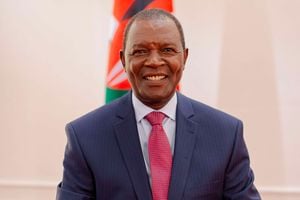Rwanda's enduring efforts to sustain women’s gains

Rwanda has exceeded its constitutional requirement of 30 per cent women in elected positions, with 61 per cent of parliament and 52 per cent of the cabinet made up of women.
Six thousand delegates from all over the world are gathered in Kigali this week for the Women Deliver Conference to discuss the status of gender equality and how to bridge existing gaps.
For us Rwandans, the conversation has moved far beyond whether or not women should be empowered and protected—this is a given. The principle of equality between men and women is enshrined in our Constitution, which spells out the commitment of Rwandans to build a nation governed by the rule of law, respect for human rights, and equality of all.
Rwanda has worked to achieve gender parity across four key dimensions: economic participation and opportunity, educational attainment, health and survival, and political empowerment. Because of these efforts, we are ranked sixth globally in closing the gender gap by the World Economic Forum’s Global Gender Gap Report.
Equal rights
Several policies and legislations have been enacted to entrench women’s equal rights in daily life. For instance, a constitutional provision stipulates a 30 per cent minimum representation of women in decision-making positions. In many instances, that figure has been reached or exceeded; women hold over 45 per cent of cabinet positions and 61 per cent of our country’s parliamentary seats.
With 86 per cent of women active in the national labour market, Rwanda is one of just three economies that registered parity in labour-force participation in 2022, a testament to Rwanda's commitment to nurturing an inclusive and dynamic innovation and entrepreneurship ecosystem.
In the words of Rwanda’s President Paul Kagame, “Ensuring gender equality is not just a moral issue, it is a rights issue, and it is a shared responsibility that concerns every member of our society.”
In short, Rwandan women, with the support of Rwandan men and the right political orientation, have been at the forefront of real advancement for the last 29 years.
So why do foreign pundits and other self-appointed arbiters of rights feel the need to undermine Rwanda’s efforts to promote gender equality? They have even invented a label that they attempt to pin on us – “gender-washing”. Apparently, this means using successes in empowering women to “cover up” supposed democratic shortcomings that only they are qualified to assess.
Remove obstacles
These uncalled-for judgments insult the agency and competence of countless Rwandan women who have and continue to exercise their rights and seize the opportunities this country has made available to them. The government of Rwanda continues to level the playing field and remove many of the obstacles that have held women back for decades.
In this enabling environment, Rwandan women have taken on the imperative for self-reliance and dignity. They transformed themselves from victims to agents of reconciliation, inclusivity, and progress.
For instance, the Rwanda Women Parliamentary Forum, in close collaboration with Pro-Femmes/Twese Hamwe (an umbrella organization of 50 civil society groups), played an instrumental role in passing the 1999 inheritance law, which allowed women and girls the right to inherit family property.
Today Rwandan women parliamentarians continue to participate in passing non-discriminatory laws, voicing emerging gender-related issues, and exercising oversight on the implementation of gender-responsive programs.
Perhaps those who attempt to belittle Rwanda’s achievements in this area refuse to believe that a small African nation can be a global leader in gender equality, a challenging issue that persists even in many advanced democracies.
As the Women Deliver takes place in Kigali this week, we know that gender equality is still unfinished business. Data-driven focus and accountability mechanisms are essential. For us, these numbers are simply metrics to ascertain what is working and what needs to be adjusted. While challenges remain, Rwanda continues to set a high standard for our people.
Nations that curve their own paths in the context of their history and current challenges and in service to all their people deserve respect.
Yolande Makolo is the Spokesperson of the Government of Rwanda





